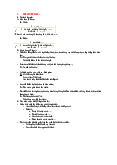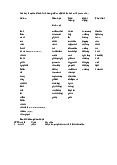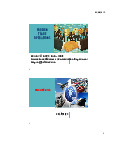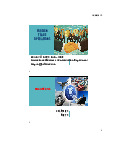
Preview text:
1. The House of Lords and the House of Commons are the two chambers of
the Parliament of the United Kingdom. While both play important roles in the
legislative process, they have different compositions, functions, and powers. The House of Commons:
- Composed of Members of Parliament (MPs) who are elected by the public in general elections.
- Holds primary legislative power, as most bills originate in the House of Commons.
- The government is formed by the party or coalition with the majority of
seats in the House of Commons, and the Prime Minister is usually the leader of this majority party.
- MPs represent constituencies and are responsible for representing the
interests and concerns of their constituents. The House of Lords:
- Composed of appointed members, including life peers, hereditary peers, and bishops.
- Acts as a revising chamber, reviewing and suggesting amendments to
legislation proposed by the House of Commons.
- Does not have the same power as the House of Commons in initiating financial legislation.
- Provides expertise, scrutiny, and checks on the government and legislation
through its committees and debates.
In terms of raw legislative power, the House of Commons is generally
considered more powerful, as it holds the authority to introduce and pass
legislation, and the government is formed based on its composition.
However, the House of Lords plays a crucial role in scrutinizing legislation
and providing additional perspectives and expertise.
2. The British monarch cannot enter the House of Commons because of the
principle of parliamentary sovereignty and the separation of powers between
the monarchy and Parliament. The tradition dates back to the English Civil
War and the Glorious Revolution, during which Parliament asserted its
supremacy over the monarchy. Allowing the monarch to enter the House of
Commons could undermine this principle and blur the separation between
the executive (monarchy) and the legislature (Parliament). As a result, the
monarch's presence is confined to the State Opening of Parliament, where
they deliver the Queen's Speech from the House of Lords, symbolizing the
ceremonial aspect of the monarch's role in the legislative process.




